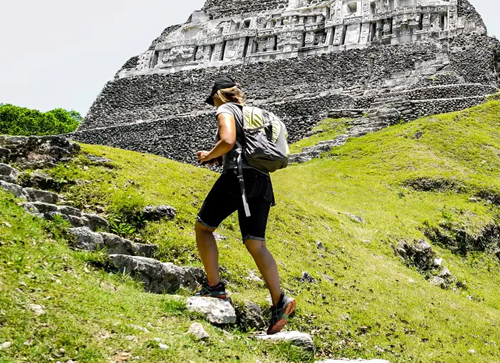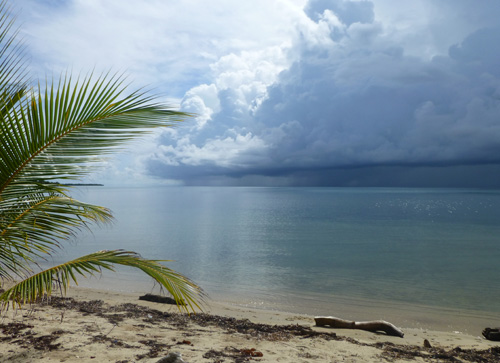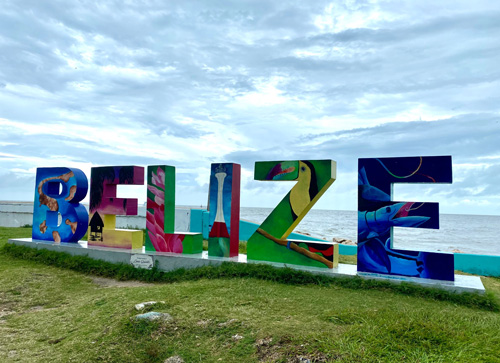Quick Links: About Us - Contact Us

Belize is a small but stunning country packed with adventure—crystal-clear cayes, ancient Maya ruins, lush jungles, and colorful cultures. But with its growing popularity also come swirling rumors and safety myths that can scare off would-be travelers.
Let’s clear things up.
We’re breaking down the most common safety myths about Belize, comparing them to the real facts, and giving you practical tips to stay safe while enjoying every unforgettable moment.
MYTH #1: “Belize is too dangerous to visit.”
FACT: Belize has some safety concerns—like any country—but it’s generally safe for tourists who take standard precautions.
Yes, Belize City (especially the south side) has higher crime rates, mostly related to gang violence and drugs, but most of it doesn’t affect tourists.
The majority of crimes involving visitors are petty theft or scams, not violence.
How to stay safe:
- Stick to well-lit, tourist-friendly areas
- Don’t walk alone at night, especially in Belize City
- Use official taxis or hotel transport
- Avoid flashing valuables or carrying large amounts of cash
MYTH #2: “Backpackers and solo travelers shouldn’t go to Belize.”

FACT: Belize is actually a favorite among solo travelers, digital nomads, and backpackers, thanks to its laid-back vibe and friendly locals.
Places like Caye Caulker, San Ignacio, and Placencia are known for being solo-travel-friendly, with hostels, group tours, and community-based tourism.
Solo travel safety tips:
- Stay in well-reviewed hostels or guesthouses
- Join group activities to meet other travelers
- Keep friends or family updated on your location
- Use common sense when socializing or going out at night
MYTH #3: “The rainy season is unsafe for travel.”

FACT: Belize’s rainy season (June to November) brings heavier showers, but it’s not inherently dangerous.
Some areas may experience flooding or rougher seas, and roads in rural parts can become difficult to navigate—but tourism doesn’t stop, and many travelers enjoy fewer crowds and lower prices.
Rainy season travel tips:
- Book hotels with good drainage and backup power
- Travel with flexibility in case of delays
- Always check the weather before diving or taking a boat tour
MYTH #4: “Belize City is a no-go zone.”

FACT: Belize City does have higher crime rates than the rest of the country, but it’s not all bad.
Tourists usually visit the Fort George area, Swing Bridge, or catch a water taxi at the terminal—and these areas are generally safe during the day.
Tips for Belize City:
- Avoid the south side of the city
- Don’t linger at night—transit through if needed
- Use registered taxis, especially from the airport or ferry terminal
- Stick to main roads and tourist areas
MYTH #5: “The jungle is full of dangerous animals and snakes.”

FACT: Belize’s wildlife is wild—but not out to get you.
Yes, there are snakes, jaguars, and other exotic critters, but they tend to avoid humans. Attacks are extremely rare, and you’re far more likely to get bitten by mosquitoes than a snake.
Jungle safety tips:
- Wear closed shoes and long pants on jungle hikes
- Hire licensed guides for tours
- Use bug spray with DEET to avoid mosquito-borne illnesses (like dengue or Zika)
- Don’t hike alone
MYTH #6: “The police are corrupt and unhelpful.”
FACT: While some travelers have reported mixed experiences, many tourists find Belizean police to be professional and responsive—especially in tourist areas.
Like anywhere, corruption can exist—but it’s not the norm in most interactions with foreigners.
Tip: If you run into trouble, go to the nearest tourist police or ask your hotel for help. Always keep a copy of your passport and travel insurance info on hand.
MYTH #7: “You don’t need travel insurance in Belize.”
FACT: You absolutely should have travel insurance, especially if you plan to dive, hike, or explore remote areas.
Medical costs, emergency evacuations, or stolen gear can get expensive fast.
Tip: Get insurance that covers:
- Adventure activities (diving, snorkeling, zip-lining)
- Medical evacuation
- Trip cancellations or delays
- Lost or stolen items
Other Safety Tips for Belize (2025)
- Use registered taxis or shuttles—especially at night or in cities
- Don’t carry your passport when you go out—carry a copy
- Use ATMs in well-lit or guarded areas
- Be aware of scams like inflated tour prices or fake guides
- Stay hydrated and watch your alcohol intake in the heat
- Follow local laws, including restrictions on certain marine areas and wildlife
Is Belize Safe for Families?
Yes! Belize is a popular destination for family vacations, especially in areas like:
- Placencia
- Hopkins
- Caye Caulker
- San Pedro (Ambergris Caye)
Families love Belize for its mix of adventure and relaxation, and many hotels cater specifically to travelers with children.
Is Belize Safe for Digital Nomads?
Belize is gaining popularity among remote workers, especially in:
- San Ignacio
- Corozal
- Caye Caulker
It has decent Wi-Fi in urban and coastal areas, English as the official language, and a strong expat and nomad scene.
Still, remember: working remotely in Belize long-term may require a self-employment or work permit.
FAQs – Belize Safety
1. Is Belize safe for solo female travelers?
Yes, especially in tourist-friendly areas. Use the same precautions you would anywhere: avoid walking alone at night, trust your gut, and choose safe accommodations.
2. What areas should tourists avoid?
Parts of South Belize City, isolated rural areas at night, and unlicensed tour operators.
3. Is it safe to rent a car and drive?
Yes—just be cautious. Roads can have potholes, unmarked speed bumps, and limited signage. Avoid night driving in unfamiliar areas.
4. Is public transportation safe?
Generally, yes. Buses are popular and cheap, but can be crowded. Don’t flash valuables.
5. Do hurricanes pose a major risk
Belize is in the hurricane belt, so during June to November, check weather forecasts and buy travel insurance.
Final Thoughts – Belize Safety: Smarter, Not Scared
Belize isn’t perfect, but it’s far safer than many travelers expect. Like anywhere in the world, common sense and local awareness go a long way.
Let’s bust the myths and keep the facts front and center:
- It’s safe for solo travelers and families
- Most crime is non-violent and avoidable
- Nature is wild, but not deadly
- Be smart, be respectful, and enjoy the ride
Whether you’re hiking through the jungle, diving into the Blue Hole, or sipping rum punch by the sea, Belize has endless beauty and good vibes waiting for you—safely.


